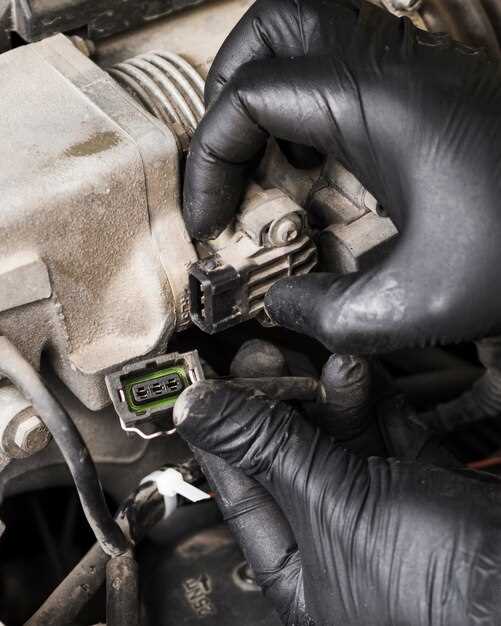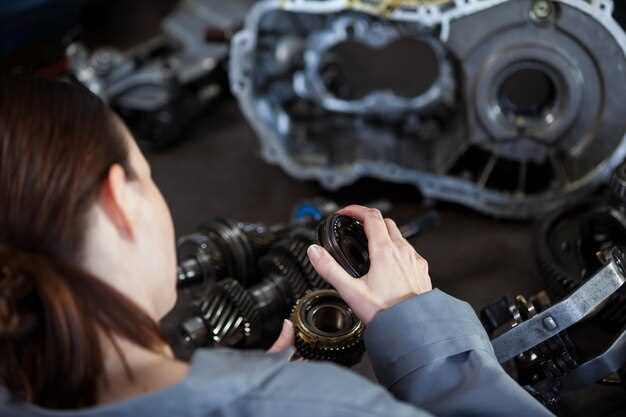
Your Volkswagen engine is the heart of your vehicle, delivering power and performance that make every drive enjoyable. However, like any mechanical component, it requires care and maintenance to ensure it operates efficiently for years to come. Understanding how to preserve the integrity of your engine is essential for both longevity and reliability.
Regular maintenance and timely interventions can significantly extend the lifespan of your Volkswagen engine. From routine oil changes to monitoring cooling systems, there are several practical steps every owner can take to enhance engine durability. By prioritizing these preventive measures, you can save on costly repairs and enjoy a smoother driving experience.
This article will explore effective tips and guidelines tailored specifically for Volkswagen engines. Whether you’re a seasoned enthusiast or a first-time owner, implementing these strategies will not only keep your engine running efficiently but also contribute to the overall performance and value of your vehicle.
Regular Maintenance Checks and Oil Changes

Regular maintenance checks are essential for prolonging the lifespan of your Volkswagen engine. These checks should include a comprehensive inspection of various engine components, including belts, hoses, filters, and spark plugs. Identifying issues early can prevent costly repairs and keep your engine running smoothly.
One of the most critical aspects of engine maintenance is oil changes. Engine oil lubricates moving parts, reduces friction, and helps dissipate heat. Over time, engine oil can degrade and lose its effectiveness, leading to increased wear and tear on engine components.
It’s advisable to change your engine oil and oil filter according to the manufacturer’s recommendations, typically every 5,000 to 7,500 miles, depending on your driving conditions and oil type. Using high-quality oil that meets Volkswagen’s specifications will enhance engine performance and longevity.
In addition to oil changes, you should regularly check the oil level between changes. Low oil levels can result in inadequate lubrication, leading to severe engine damage. Make it a habit to check the dipstick and top off oil as necessary.
In conclusion, adhering to a regular maintenance schedule and timely oil changes are crucial for maintaining your Volkswagen engine. This proactive approach will ensure optimal performance and ultimately extend the life of your vehicle.
Choosing the Right Fuel and Quality Engine Oil

Choosing the appropriate fuel for your Volkswagen engine is critical to its performance and longevity. Always opt for the fuel grade recommended by the manufacturer, typically found in the owner’s manual. Using lower-grade fuel can lead to knocking, reduced efficiency, and potential engine damage over time. Additionally, consider using high-quality fuels that contain detergents and additives to help keep the engine clean and effectively prevent deposit buildup.
The type of engine oil you select is equally important for the health of your Volkswagen engine. Always use a high-quality engine oil that meets or exceeds the specifications set by the manufacturer. Synthetic oils often provide superior protection, enhanced temperature stability, and better overall performance compared to conventional oils. Regularly check your oil level and change the oil as per the maintenance schedule, as dirty oil can lead to increased wear and tear on engine components.
In summary, high-quality fuel and engine oil are essential for maintaining engine performance and extending its lifespan. Always choose fuels and oils that meet Volkswagen’s specifications, and adhere to a consistent maintenance routine for optimal results.
Monitoring Engine Temperature and Cooling System Health
Maintaining an optimal engine temperature is crucial for ensuring the longevity and efficiency of your Volkswagen engine. Regular monitoring of the engine temperature can prevent overheating, which can lead to serious damage and costly repairs.
Start by regularly checking the coolant level in the reservoir. A low coolant level can indicate leaks or evaporation, which should be addressed immediately. It’s essential to use the correct type of coolant as specified in your owner’s manual, as incompatible fluids can cause corrosion and reduce the effectiveness of the cooling system.
Next, pay attention to the engine temperature gauge on your dashboard. If you notice the needle approaching the red zone, take action by pulling over safely and turning off the engine. Allow the engine to cool down before opening the hood to prevent burns. This shows that the cooling system may be underperforming and needs inspection.
Additionally, examine the condition of the radiator and its components. Ensure that the radiator is free from debris and that the cooling fins are clean to promote air circulation. Check for any signs of corrosion or rust, which can impair cooling efficiency.
The thermostat within your engine plays a critical role in regulating coolant flow. Make sure it is functioning correctly, as a malfunctioning thermostat can either cause the engine to overheat or run too cool, leading to inefficient fuel consumption.
Consider having the cooling system flushed at regular intervals, typically every two years or as recommended by the manufacturer. This process removes harmful deposits and ensures that the cooling system operates efficiently.
Finally, keeping an eye on the water pump is essential. Look for signs of leaks or unusual noises that may indicate a failing pump. A properly working water pump is vital for circulating coolant through the engine and radiator.
By actively monitoring your engine temperature and the health of your cooling system, you can significantly enhance the lifespan of your Volkswagen engine and reduce the risk of overheating-related issues.




